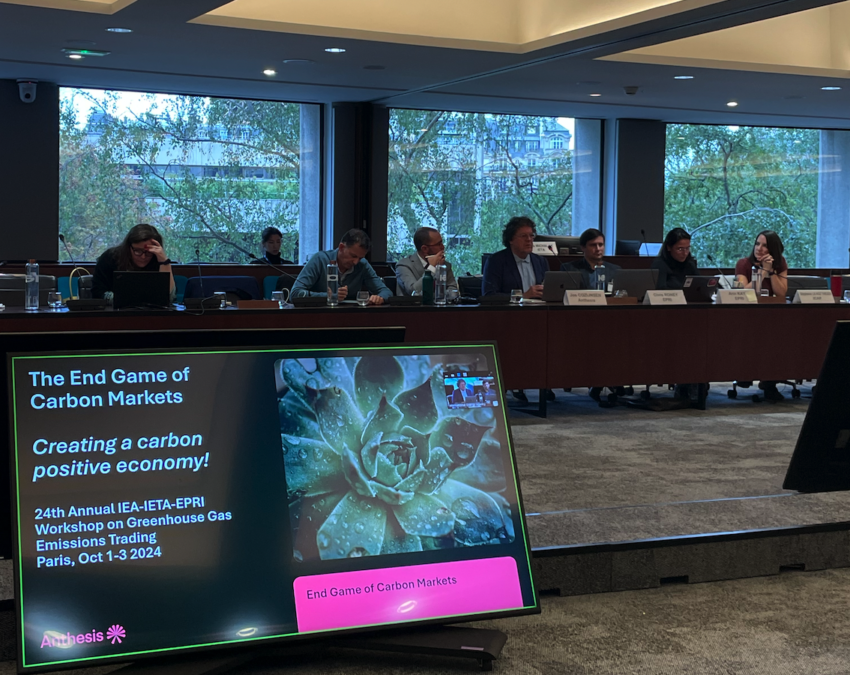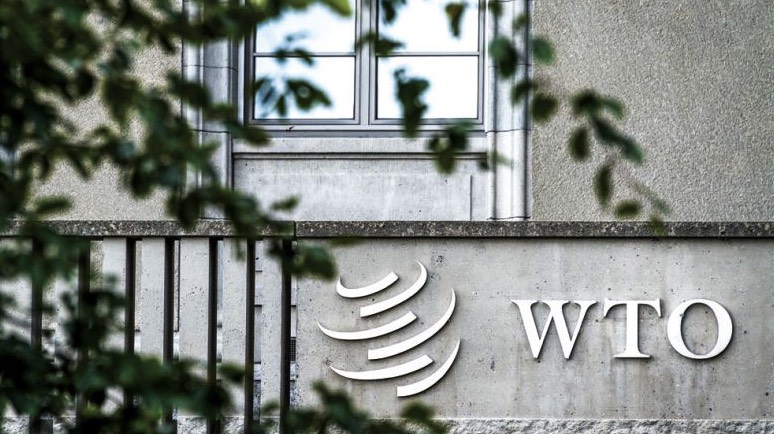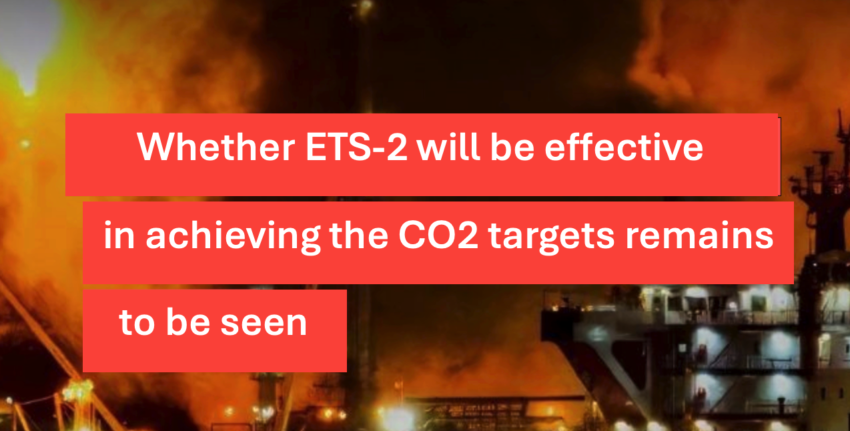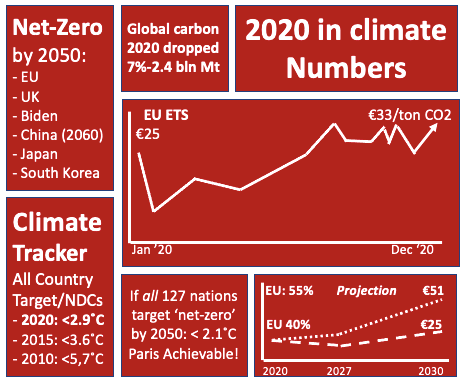To help achieve the EU’s 55% target for 2030 and 0 in 2050, the EU has determined that the EU Emissions Trading System for industry, energy, air and maritime shipping (ETS-1) will get a little brother as of 2027: ETS-2. This includes CO2 emissions from the combustion of fuels in traffic and for heating and…
Category: CO2-marktanalyse

Updates and the future of carbon trading
Last week I joined for Anthesis the 24th annual GHG Trading Workshop by IEA-IETA-EPRI. I gave a presentation on the future of the carbon market, particularly EU #ETS after 2040. I highlighted how the EU ETS can get a #negative emissions target, gradually introducing carbon #removals from EU and global projects. Stephanie La Hoz Theuer of ICAP…

IPCC: “Net-Zero” approach helps meet temperature goal
Eventually all global emissions must be zero but we can win time with a “net” approach if we do a proper climate accounting. The report of Working Group III of the IPCC says “meeting the long-term temperature objective in the Paris Agreement implies a rapid turn to an accelerating decline of greenhouse gas emissions towards…

Six tips to make the climate summit to a success
The annual climate summit, after a year of Corona postponement, is happening in Glasgow as CoP26, the first two weeks of November. I will attend the CoP for Climate Neutral Group. And I give hereby my six tips for the summit summarized in a few words: you get more ambition with more flexibility. My tips…

Making an EU Carbon Border Tax easier with a Carbon Club
My six tips for a European Carbon Border Tax. The President of the new European Commission Ursula von der Leyen has asked Commissioner for Trade Phil Hogan to levy a CO2 tax on imports to the EU: “to contribute to the design and introduction of the Carbon Border Tax, working closely with the Commissioner for…

Emissiehandel als Mechanism Design: het belang van informatie en prikkels
Vooraf: Deze column schreef ik in maart 2012 nadat ik met Arnold Heertje had gesproken over de wereld in overlevingscrisis en noodzakelijke omslag naar een duurzame economie. Volgens Heertje stond “optimaal organiseren van prikkels” centraal; hoe zorg je dat ongewenste effecten minder gaan optreden? CO2-handel als “mechanism design”. Ik pleitte in de column voor een…

Gevolgen van de coronacrisis voor klimaatbeleid (podcast)
Sinds de Corona-uitbraak ook Europa hard raakt, is de CO2-prijs fors gedaald. Remco de Boer van StudioEnergie praat met mij over de gevolgen voor de energietransitie en het klimaatbeleid.

